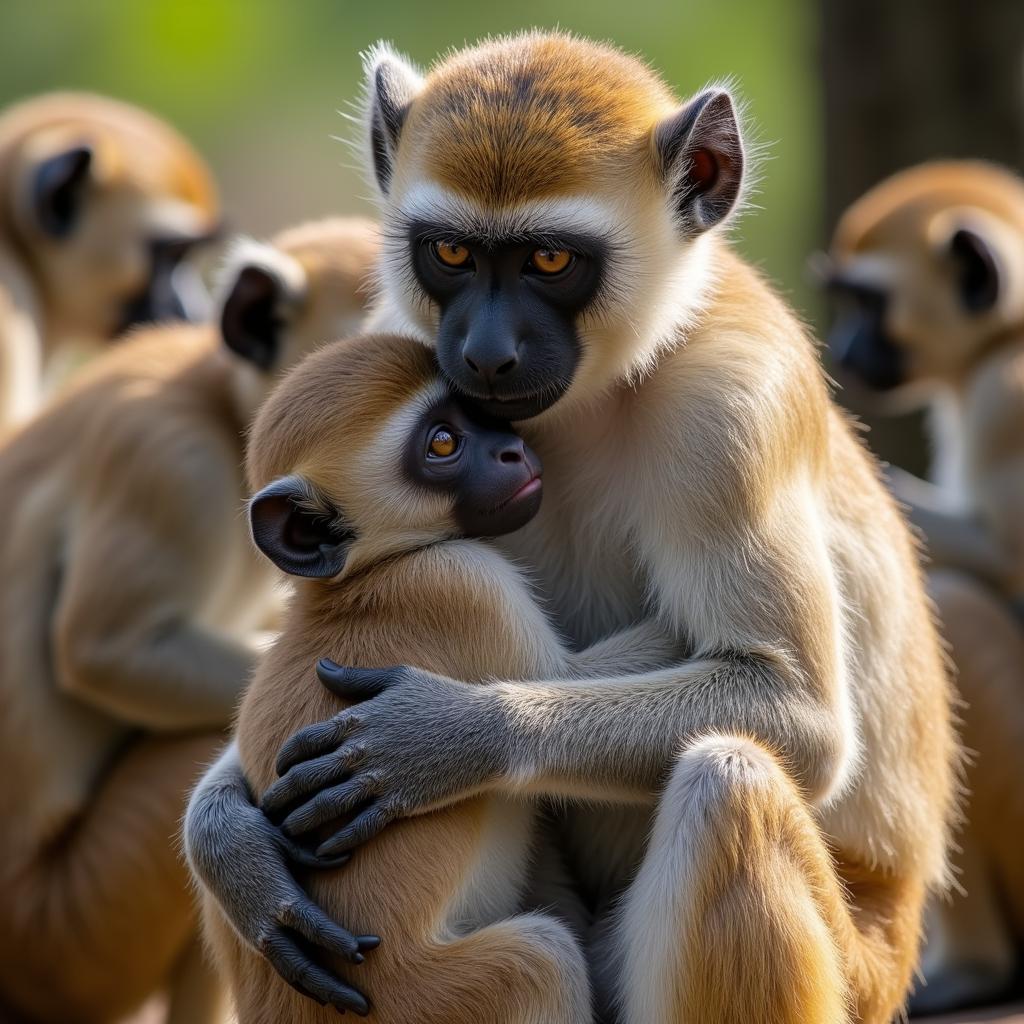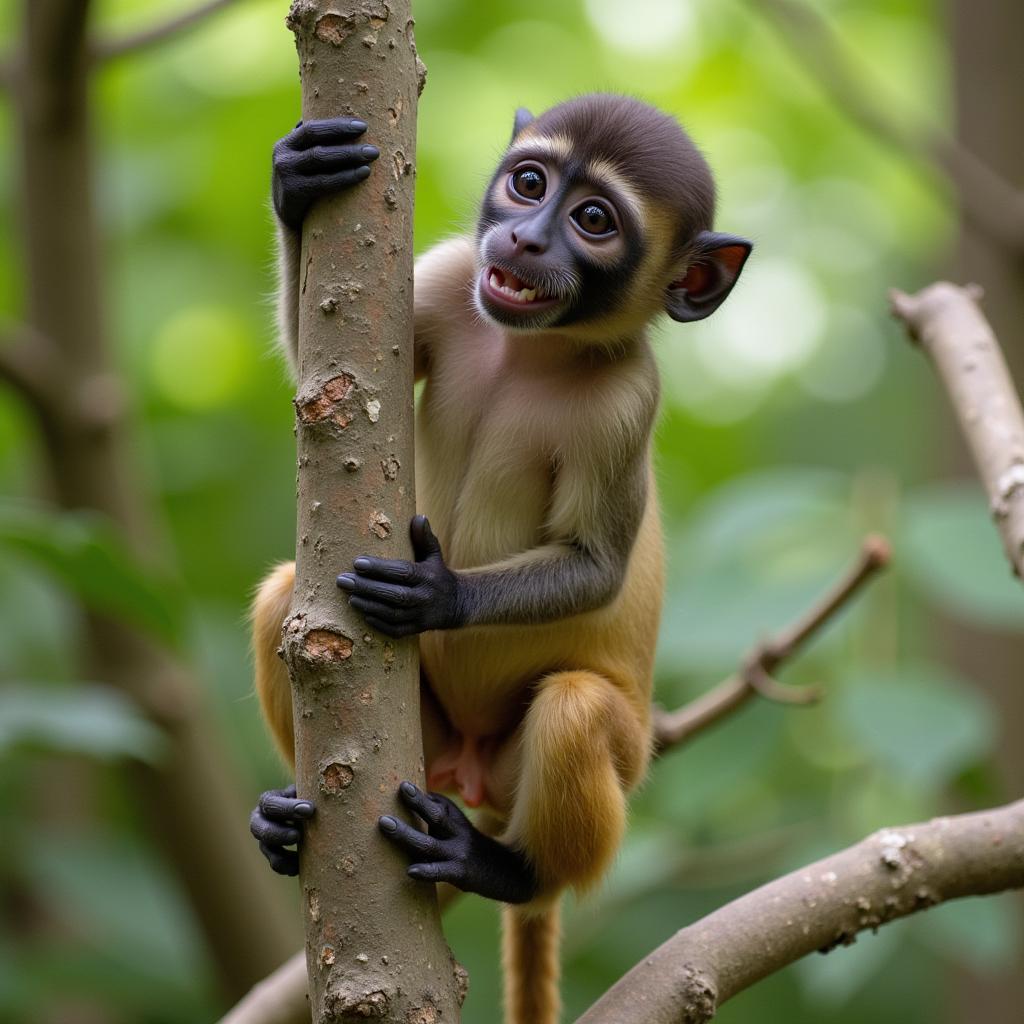Unveiling the Charm of the African Baby Monkey
African Baby Monkeys, with their big eyes, playful antics, and undeniable cuteness, captivate the hearts of people worldwide. These fascinating creatures, found in diverse habitats across the African continent, offer a glimpse into the complex social structures and remarkable adaptability of primates. From the savannas to the rainforests, African baby monkeys thrive under the watchful eyes of their mothers and within the protective embrace of their troop.
A World of Diversity: Exploring Different Species
The term “African baby monkey” encompasses a range of species, each with its unique characteristics and adaptations. Some of the most well-known include:
- Vervet Monkeys: Recognized by their distinctive black faces and grey bodies, vervet monkeys are highly social and known for their complex communication systems.
- Patas Monkeys: These ground-dwelling monkeys are among the fastest runners in the primate world, capable of reaching speeds of up to 35 miles per hour.
- Guenon Monkeys: This diverse group includes various species with striking colors and patterns, often exhibiting sexual dimorphism, where males and females display different physical traits.
 Vervet Monkey Family
Vervet Monkey Family
From Birth to Independence: The Journey of an African Baby Monkey
The early life of an African baby monkey is a period of rapid development and crucial learning.
- Birth and Infancy: Born with soft, downy fur and clinging instincts, baby monkeys rely entirely on their mothers for nourishment and protection. They spend their first few weeks clinging to their mothers’ bellies, nursing frequently.
- Developing Motor Skills: As they grow stronger, baby monkeys begin to explore their surroundings, venturing further from their mothers for short periods. They practice climbing, swinging, and interacting with other troop members under the watchful eyes of adults.
- Social Integration: Play is essential for the development of social skills in young monkeys. Through play fighting, chasing, and grooming, they learn the intricacies of their social hierarchy and develop bonds that will shape their lives.
 Learning to Climb
Learning to Climb
The Importance of Family: Protection, Provision, and Social Learning
Family plays a vital role in the survival and development of African baby monkeys. Mothers, aunts, older siblings, and even unrelated females often contribute to the care of infants, a behavior known as alloparenting.
- Protection from Predators: Living in groups offers safety in numbers, with adults working together to deter predators like leopards, eagles, and snakes.
- Finding Food: Mothers teach their young how to locate and identify edible plants, fruits, and insects.
- Learning Social Cues: By observing adults, young monkeys learn how to communicate effectively, navigate social situations, and recognize potential threats.
Conclusion: The Enduring Appeal of African Baby Monkeys
African baby monkeys, with their playful nature, endearing features, and incredible adaptability, hold a special place in the animal kingdom. Their journey from helpless infants to confident juveniles highlights the essential role of family, social learning, and environmental adaptation in the primate world. Understanding and appreciating these amazing creatures contributes to a deeper respect for the biodiversity of the African continent and the importance of conservation efforts to protect them.

